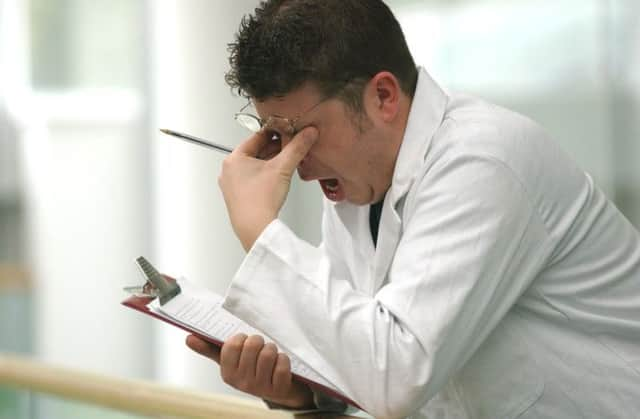Lyndsay Buckland: GPs are overworked and feeling pressure


So many people may have little sympathy for GPs who are again highlighting concerns about their own workload, which they say is increasing significantly but with no extra funding to help them meet demand.
With the number of consultations with patients rising year on year, as the population ages and more work is moved from hospitals into the community, they say many are starting to buckle under the pressure.
Advertisement
Hide AdAdvertisement
Hide AdThe British Medical Association’s Your GP Cares campaign is calling for “long-term, sustainable investment” in general practice, while also highlighting the “unique strength” practices bring to the NHS.
It is easy to point to GPs’ ample salaries and say they should just get on with it and stop complaining. But money does not mean you can buy extra hours in the day.
GPs are seeing maybe 40 patients a day in some surgeries. On top of this they have to deal with the paperwork linked to these appointments, plus the hundreds of letters and test results coming back from the lab. Some will also have commitments to out-of-hours services and other NHS-related work or research.
Indeed, the workload is now growing to such an extent that many GPs are choosing to work part-time rather than face burn-out before the end of their careers.
This brings its own challenges, as more GPs working part-time means more GPs needed in general to fill the gaps – another key ask in the BMA’s campaign.
Having spent time shadowing a number of GPs in their daily work, I know it is not a job I could do. Even if I could overcome my aversion to ickiness, and possibly garner a few extra brain cells, the relentless pressure to make important decisions at speed while also wondering what is coming in the door next would just be too much.
Most doctors accept that they will be busy – they knew this when they choose a career in medicine – and don’t necessarily expect sympathy from patients coming in with their own challenges in life.
But if we want GP practices to still be there when we need them in the future we need to offer some degree of understanding to the challenges they face, and more importantly so do the politicians.